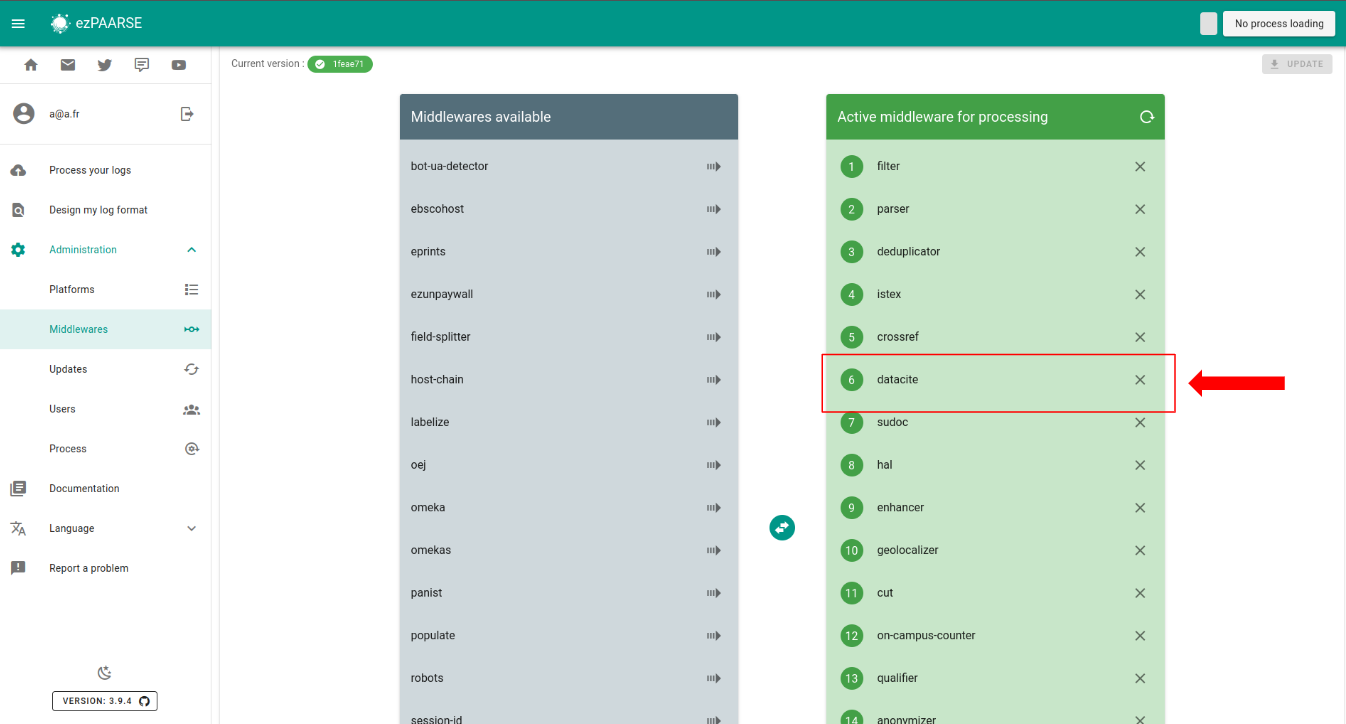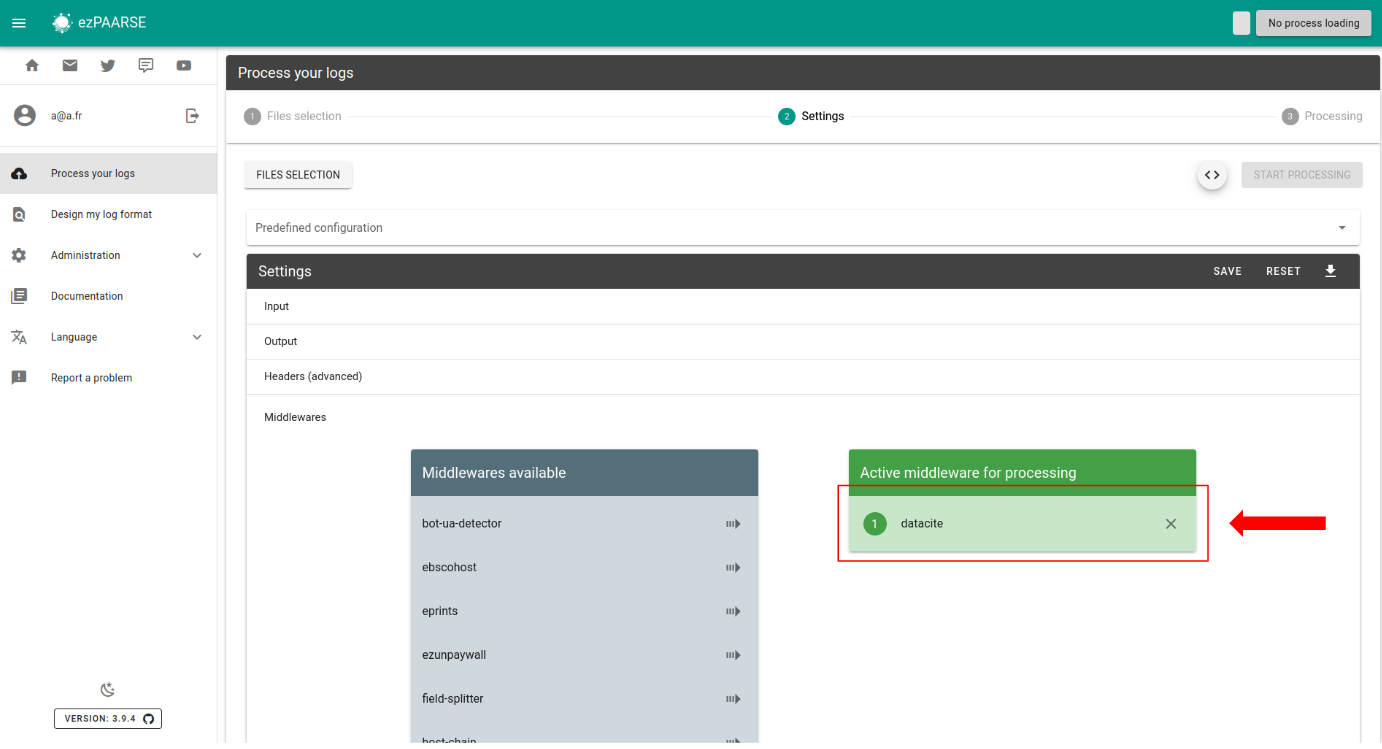# datacite
Fetches metadata from the API datacite (opens new window)
# Enriched fields
| Name | Type | Description |
|---|---|---|
| publication_title | String | Name of publication. |
| publication_date | String | Date of publication. |
| publisher_name | String | Name of publisher. |
# Prerequisites
Your EC needs a DOI for enrichment.
You must use datacite after filter, parser, deduplicator middleware.
# Headers
- datacite-cache : Enable/Disable cache.
- datacite-ttl : Lifetime of cached documents, in seconds. Defaults to
7 days (3600 * 24 * 7). - datacite-throttle : Minimum time to wait between queries, in milliseconds. Defaults to
100ms. - datacite-paquet-size : Maximum number of identifiers to send for query in a single request. Defaults to
50. - datacite-buffer-size : Maximum number of memorized access events before sending a request. Defaults to
1000. - datacite-max-attempts : Maximum number of trials before passing the EC in error. Defaults to
5.
# How to use
# ezPAARSE admin interface
You can add or remove datacite by default to all your enrichments, To do this, go to the middleware section of administration.

# ezPAARSE process interface
You can use datacite for an enrichment process. You just add the middleware.

# ezp
# enrich with one file
ezp process <path of your file> \
--host <host of your ezPAARSE instance> \
--settings <settings-id> \
--header "ezPAARSE-Middlewares: datacite" \
--out ./result.csv
# enrich with multiples files
ezp bulk <path of your directory> \
--host <host of your ezPAARSE instance> \
--settings <settings-id> \
--header "ezPAARSE-Middlewares: datacite" \
# curl
curl -X POST -v http://localhost:59599 \
-H "ezPAARSE-Middlewares: datacite" \
-H "Log-Format-Ezproxy: <line format>" \
-F "file=@<log file path>"
← cut deduplicator →